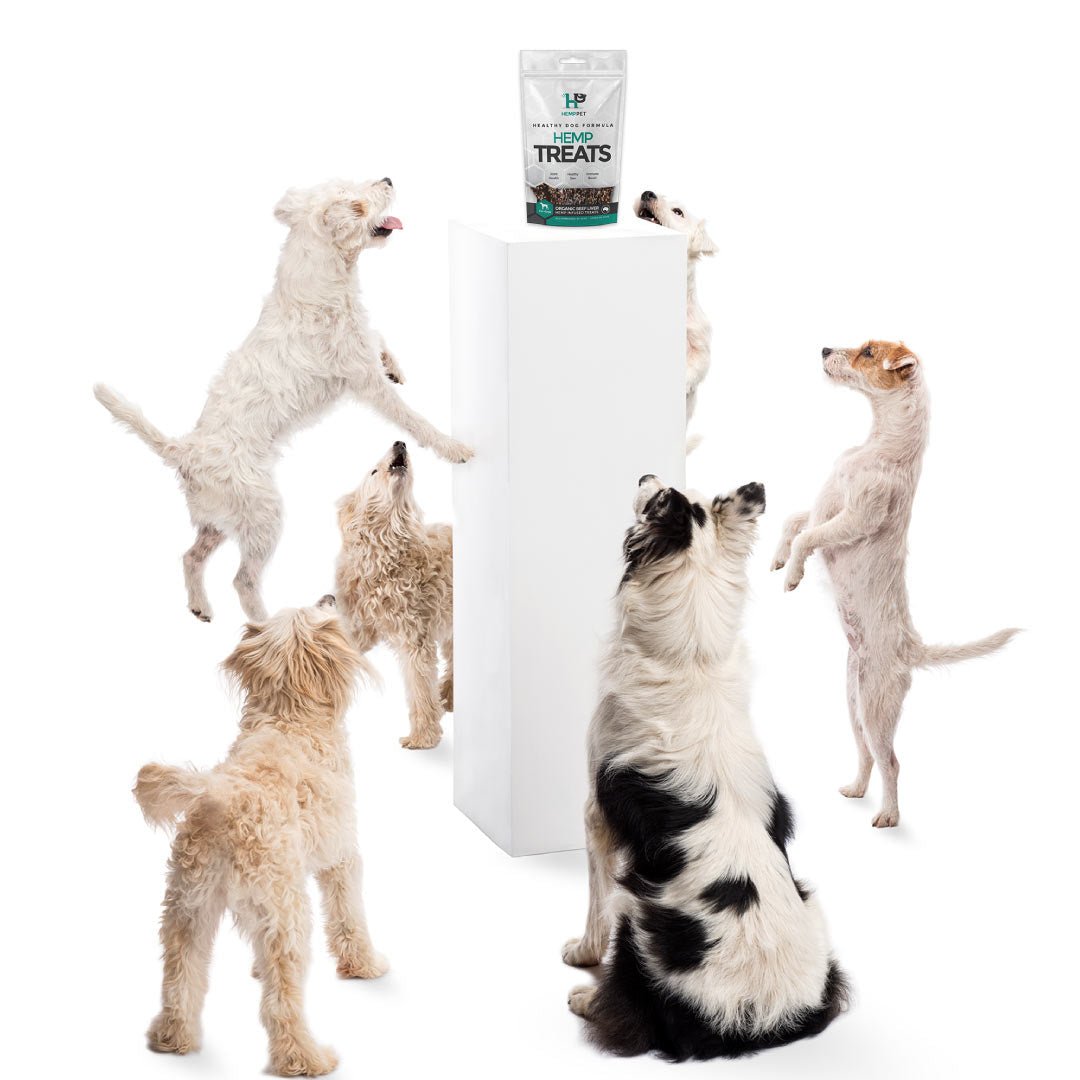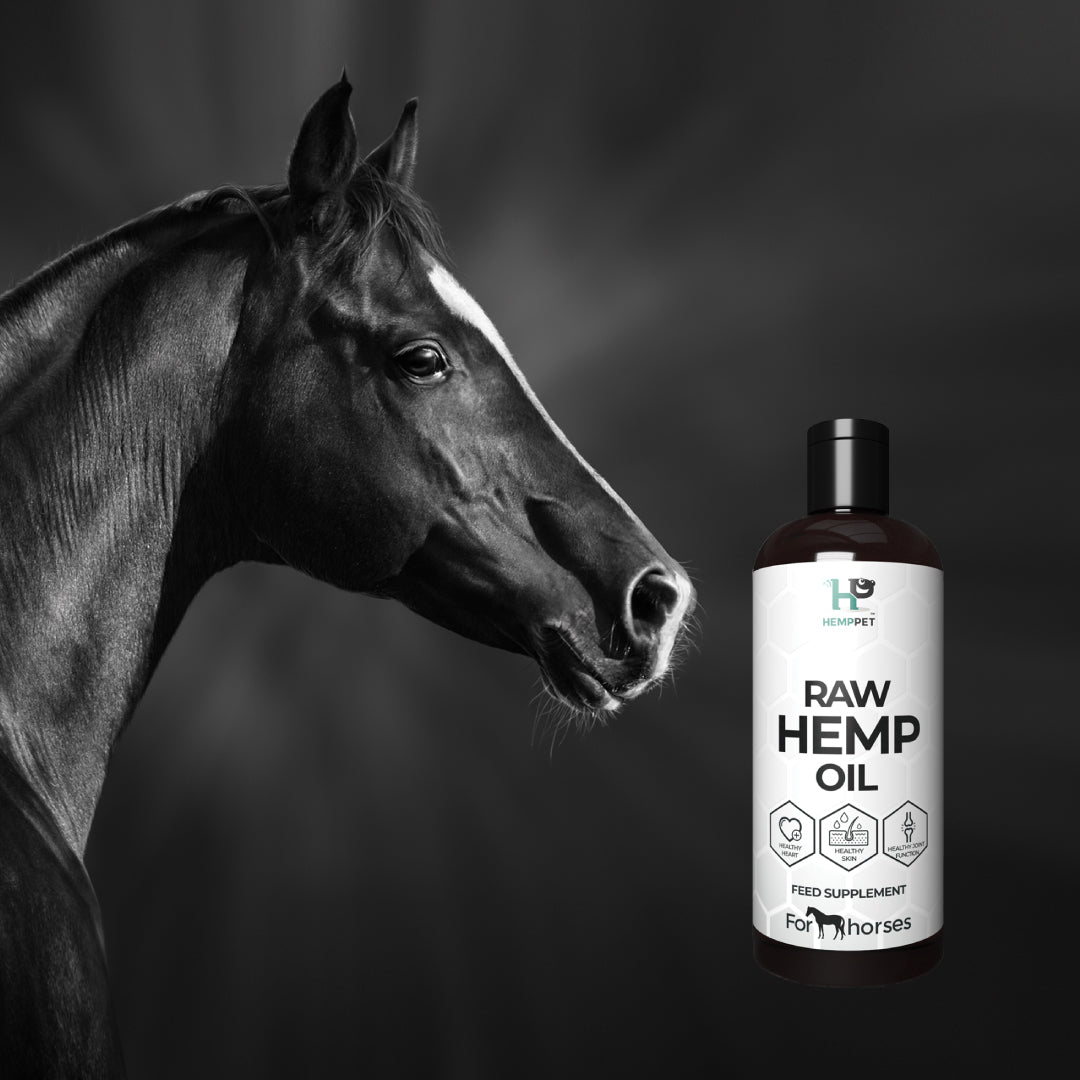Vitamin Supplements for Dogs: Why They're Important for Your Furry Companion

It's no news that dogs make wonderful pets. Your furry friends delivering loud and exciting barks when you get back from work is certain to lift your spirit. If you had a "magic wand," there's a chance you might want to keep them around forever. While this is impossible, you can lengthen their lifespan.
How? Through vitamin supplements.
At this juncture, you're probably excited. But a query beckons — what vitamin supplements should I administer to my furry companion? With numerous misconceptions online, it's easy to get lost. Not to worry, though; we've got a compass and will steer you in the right DIRECTION!
In this article, we'll shed light on notable reasons why your dog needs vitamin supplements to thrive, notable vitamin variations to adopt, and considerations to make before selecting a vitamin supplement for your dog.
The journey of a mile begins with a step. Let's get GOING!
Vitamins Defined
Every living thing on the planet requires vitamins to thrive and lead a healthy life. Unlike bodily cells, vitamins don't replicate in the body. The only way humans and pets (cats or dogs) get theirs is through the food ingested.
Major vitamin categories your dog requires include:
Vitamin A
If you have issues identifying Vitamin A, here's some context: they're the vitamins found in carrots and onions. As a kid, you had lots of these products in your food, as your parents probably told you they were essential in vision improvement.
Fortunately, the same applies to your dog.
Besides supporting and improving vision in your dog, it's vital to note that Vitamin A also comes in handy to facilitate bone development, high immune responses, and cellular differentiation.
B Vitamins
B vitamins are a cluster of essential vitamins that positively impact your dog's life. Notable mentions include:
- Thiamine (Vitamin B1): A typical additive in dog foods, Thiamine is important for your furry friend's overall well-being. It aids digestion, boosts brain function, and rejuvenates ions present in the neural tissue.
- Pyridoxine (Vitamin B6): Soluble in water, Vitamin B6 acts as a coenzyme required by your dog's body to prompt amino acid metabolism. This vitamin is also important for your pet's red blood cell production and immune system wellness.
- Riboflavin (Vitamin B2): Although some reports place Vitamin B2 in a bad light, it's pertinent to note that it's 100% safe for your dog. This vitamin aids metabolism and produces antibodies to combat illnesses and nutrient transportation to where they're required the most.
- Pantothenic Acid (Vitamin B5): Like other B vitamins, pantothenic acid aids food metabolism in your dog. This Vitamin B variation comes to the fore for pets experiencing low appetite.
- Folic Acid (Vitamin B9): Although dogs don't require a heavy dosage of folic acid, it's an important vitamin that helps red blood cell production and restores normalcy in metabolic functions.
Vitamin C
Vitamin C contains antioxidants useful in dispelling radicals in your dog. A pet getting sufficient levels of Vitamin C prevents it from aging quickly while reducing body inflammation. Vitamin C also acts as an essential component in supplements curated specifically for "senior dogs."
Fortunately, dogs can formulate Vitamin C via their livers. Thus, you might only require related supplements for your furry friend once they're older.
Vitamin D
Popularly known as the "sunshine vitamin," Vitamin D is crucial as it regulates your dog's calcium and phosphorus levels to facilitate seamless bone growth. A lack of Vitamin D is usually adverse and can cause health defects such as bone softening (osteomalacia), heart failure, and rickets.
Vitamin E
Vitamin E is a fat-soluble vitamin that denotes the same metabolic process as fat and is stored in the dog's liver. This vitamin is used to curate multiple pet supplements and comes in handy for strengthening your dog's immune system. Vitamin E also plays a role in membrane stabilization — a prerequisite vital for pain management in pets.
Choline
Ranking as an extra on our listing, choline is a vitamin that plays an essential role in multiple metabolic processes. Since choline is a major component of acetylcholine, this vitamin format regulates your dog's heart rate, blood vessel dilation (vasodilation), muscle contraction, and other bodily functions.
Choline-based supplements are often used for pets suffering from seizures (epilepsy).
Vitamin Supplements for Your Dog: Yay or Nay?
Some pet owners are usually undecided as to whether they should administer vitamin supplements to their dogs. Most dog meals on the market contain vitamins bound to boost your furry friend's immune system and increase its living quality. If you're certain that your dog's consumption of these vitamin-based meals is balanced, there's no need to purchase supplements.
But not all dogs are healthy. While your furry companion might have been in pristine condition for several years, there's a possibility of wellness issues rearing their "ugly head" in the latter stages of its life. To stay abreast of these problems and ensure your dog doesn't encounter any life-threatening circumstances, placing it on varying vitamin supplements is non-negotiable.
A vast array of supplements exist, ranging from vitamins to synthetic substances and minerals. These supplement forms are helpful in diverse ways, including metabolism improvement, great vision, and shiny coats.
As we've established, supplement intake is important for senior dogs and will slow down the aging process.
The result?
More playtime for you and your PET!
Making homemade meals for your dog is laudable. However, although most veterinarians recommend this route, there's a nagging disadvantage in the mix — these meals might not contain the vitamins required by your dog to live a healthy life. Therefore, make concerted efforts to include vitamin supplements in their meals.
While this guide is comprehensive, dogs differ. Thus, it'll be best to consult a veterinarian to understand the supplements and associated dosages required for your dog's health. Once you've facilitated this consultation, the vet conducts tests to determine vitamin deficiencies and might refer you to a veterinary nutritionist to prescribe the best supplements and approaches for your dog's feeding.
Notable Pros and Cons of Vitamin Dog Supplements
Your furry friend is an extension of you. Thus, you'd want the best for them. Giving your dog vitamin supplements is a no-brainer to see them fulfill their lifespan in great health.
Nonetheless, note that vitamin supplements have advantages and disadvantages for dogs. Here's a peek:
Advantages of Vitamin Supplements for Dogs
Some advantages of vitamin supplements for dogs include the following:
- They're Way Cheaper Than OTC Medications. One of the most popular pros of dog vitamin supplements is that they're cheaper than medications prescribed for pets. In addition, since supplements are issued to rule out the possibility of illness in your dog, the chances of you spending a fortune to treat diseases stemming from vitamin deficiency is almost non-existent. That way, you retain some "$$$" in your pockets.
- They're Flavourful. You've probably encountered supplements for dogs that have weird tastes (i.e., CBD oil). These supplements might upset your dog's stomach, resulting in nausea and vomiting. However, the tale is different with dog vitamin supplements. Since most vitamins taste good, your furry companion might not even notice their inclusion as they whack away, wagging their tails in the PROCESS! If your dog is selective about what they chew, mix vitamins into their favorite meals, and they won't notice the difference.
- DID YOU KNOW: If you've got puppies and want to ensure impeccable health from the onset, you can purchase puppy vitamin supplements. These variations are tastier than the formats available for regular dogs, leaving your puppies coming back for more. How PLEASANT!
- Hassle-free to Feed. Vitamin supplements are tasty, and even if your dog is the pickiest of eaters, mixing it alongside their meals is bound to work the trick. Of course, you could also give them to your puppies. Some medications require intravenous administration, something your dog might not fancy (unless sedated). On the flip side, vitamin supplements are somewhat "chewy," making it easy for dogs and puppies alike to chew and digest.
- Eliminate Illnesses. Remember the "an apple a day keeps the doctor away" phrase? The same applies to vitamin dog supplements. When your dog ingests a steady dose of supplements daily, the chances of developing common canine illnesses like ear infections, urinary tract issues, dental diseases, joint pain, vomiting, and diarrhoea are pretty low. Besides physical issues, vitamin supplements accord your dog the strength to weather the storms of emotional and mental challenges.
- Improves Daily Function. The main aim of vitamin dog supplements is adding to the nutritional values available in their meals. When you administer supplements to your dogs, their overall function increases. With pristine health to boot, your dog becomes more cheerful, playful and adopts a shiny coat, improving its overall appearance.
- Vitamin supplements go way beyond physical therapy. These substances are helpful in boosting their mood and mental sharpness, making your furry companion more fun to be around with.
- DID YOU KNOW: According to a 2018 report featured on PubMed, dietary supplements containing fish oil, B vitamins, antioxidants, and arginine boosted mental acuity in senior dogs experiencing cognitive decline.
- Removes Worries in Pet Owners' Hearts. After examining the aforementioned dog supplement pros, it's only normal for you to ensure your dog's health is in excellent condition at all times. Then, with your furry friend happy and cheerful, you're excited and rarely think about how a nagging illness can cut short their lifespan.
Cons of Vitamin Dog Supplements
The benefits of vitamin dog supplements are off the charts. These substances are important for your dog to stay "jiggy" and healthy. But, despite its benefits, several pet owners are steering clear from these supplements.
Why?
Due to the following reasons:
- More Expenses. Taking care of your dog can be a financially draining activity. But due to the love we have for our furry friends, we pay for things that ensure their longevity. Although vitamin supplements are crucial, delivering these substances regularly to your dog can bore a hole in your finances if you don't have "deep pockets." To help with this, canvass the Internet for healthy and cost-effective options. That way, you stay within your budget.
- Adverse Reactions. If your dog is taking any medication to resolve an existing illness, you should consult your vet to ensure it's safe to deliver vitamin-based supplements. You might find some supplements that feature the "100% Natural" caveat. Albeit great, this might be a marketing gimmick to attract prospects. Giving your dog a supplement without seeking advice from a vet can prompt life-threatening reactions.
- Allergies. Many dog vitamin supplements don't feature allergens that can prove fatal to your dog. Nonetheless, some variations incorporate them, and your furry friend could develop severe allergy reactions without due diligence during the purchasing and administering the process. To avoid this scenario in its entirety, only buy vitamin supplements made from natural ingredients. As an extra precaution, seek your vet's perspective on what brands curate allergen-free and effective supplements.
- Less than Reputable Brands. The dog vitamin supplement industry is still growing. Although the rising number of manufacturers might seem like a good sign, appearances can be deceiving. Some firms, in a bid to prompt astronomical ROI values for themselves, curate products that don't meet health standards.
The result?
Ineffective vitamin supplements are going around the market, ridding you of your hard-earned funds.
To help avoid these products, consult with your vet for recommendations.
Purchasing Dog Vitamin Supplements for the First Time?
Implement These Tips...
Before buying supplements, it's pertinent to note that these substances aren't as heavily regulated as Over The Counter medications. Thus, it's important to do research before purchasing a dog vitamin supplement.
During your research, ensure you look out for the following:
- Brands that field commissioned and accessible clinical reports on their products
- Labels denoting high-quality and safety
- Batch numbers. These values indicate that your preferred dog vitamin supplement was manufactured by a company that performs quality control (QC) checks.
- Claims that sound too good to be true. Most times, these are mere marketing gimmicks to attract customers.
Major Takeaway
There you have it! This article has taken a peek at dog vitamin supplements and what vitamins are essential for your furry friend. Despite their advantages, conduct due diligence to avoid the cons associated with their usage.
Although numerous options abound on the market, ensure you speak to a vet for recommendations. At Hemp Pet, you can always be assured when buying Hemp Pet food and supplements for your fur baby that we only use premium-grade ingredients and no hidden nasties.
Shop our range today!
0 comments

















